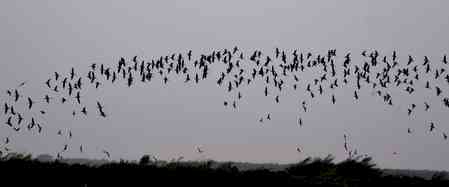In today's fast-paced news environment, news sense is more important than ever
News sense refers to the ability of journalists, reporters and media professionals to identify and assess newsworthy events, stories and situations in a timely, accurate and ethical manner. It encompasses a range of skills, including critical thinking, analysis, judgment, and intuition, that enable journalists to make informed decisions about what news to cover and how to cover it.

News sense refers to the ability of journalists, reporters and media professionals to identify and assess newsworthy events, stories and situations in a timely, accurate and ethical manner. It encompasses a range of skills, including critical thinking, analysis, judgment, and intuition, that enable journalists to make informed decisions about what news to cover and how to cover it.
News sense is a crucial aspect of journalism, as it determines the content and focus of news stories and ultimately affects public opinion and understanding of events. Good news sense helps journalists to separate important and relevant information from less significant details and to prioritize news stories based on their significance and impact.
In order to develop and maintain good news sense, journalists must be well informed about current events and developments in their local, national and international communities. This requires a strong commitment to continuous learning, research and investigation. Additionally, journalists must be attuned to the needs, interests and perspectives of their audience and must take into account the cultural, social and political context in which their stories are being told.
Good news sense also requires that journalists adhere to ethical principles and standards, such as accuracy, impartiality, fairness, and balance. This means that journalists must verify their facts, avoid sensationalism and strive to present multiple perspectives and voices in their reporting. In order to maintain credibility and integrity, journalists must also avoid conflicts of interest and refrain from reporting on issues in which they have a personal stake.
The development of news sense is an ongoing process and requires constant self-reflection and improvement. As the media landscape and technology continue to evolve, journalists must be adaptable and stay informed about new trends, tools and techniques. This includes staying up to date with changes in media laws and regulations, and being mindful of the potential consequences of their reporting.
In today's fast-paced news environment, news sense is more important than ever. With the rise of social media and citizen journalism, it is easier for anyone to share information and news stories, but it is also more challenging for journalists to distinguish between reliable and unreliable sources. As a result, journalists must be more vigilant and discerning in their reporting and must be able to differentiate between credible sources and false information.
In conclusion, news sense is a vital aspect of journalism and is essential for producing quality, trustworthy and impactful news stories. It requires a combination of knowledge, skills, experience and ethical values, and must be developed and nurtured over time. By continually refining their news sense, journalists can help to ensure that news is reported in an accurate, balanced and impartial manner, and that it contributes to a better informed and more engaged public.


 City Air News
City Air News 









